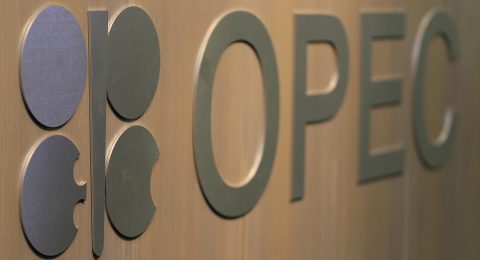Four months into oil’s rebound from a six-year low, the tanker market is sending a clear signal that the rally is under threat.
A sudden surge in demand for supertankers drove benchmark charter rates 57 percent higher in the two weeks through May 20. OPEC will have almost half a billion barrels of oil in transit to buyers at the start of June, the most this year, while analysts say about 20 million barrels is being stored on ships in another indication the glut has yet to dissipate.
The Organization of Petroleum Exporting Countries is pumping the most oil in more than two years, determined to defend market share rather than prices. A record cut to the number of active U.S. drilling rigs and billions of dollars of spending reductions by companies since last year’s price plunge has yet to translate into a slump in barrels produced. The world is pumping about 1.9 million barrels a day more crude than it needs, according to Goldman Sachs Group Inc.
“Supply of oil continues to build,” said Paddy Rodgers, the chief executive officer of Antwerp, Belgium-based Euronav NV, whose supertanker fleet can haul 56 million barrels of crude. “All of this oil needs to go somewhere,” he wrote in an e-mail May 19.
Daily rates for supertankers on the industry’s benchmark route reached $83,412 on May 20, from $52,987 on May 6, according to the Baltic Exchange in London. While rates since retreated to $65,784, they’re still the highest for this time of year since at least 2008.

Brent crude futures advanced 38 percent from this year’s low on Jan. 13, and traded at $62.30 a barrel on the London-based ICE Futures Europe exchange at 10:53 a.m. local time Thursday.
Increasing Exports
OPEC’s 12 members will have 485 million barrels of oil in transit to buyers in the four weeks to June 6, the most since November, Roy Mason, founder of Oil Movements, a Halifax, England-based company monitoring the flows, said by e-mail Wednesday.
Iraq, the group’s second-largest producer, plans to boost exports to a record 3.75 million barrels a day next month, according to shipping programs.
Spare tanker capacity in the Middle East has seldom been tighter. The combined excess of ships competing for the region’s exports stood at 6 percent last week, the lowest for the time of year in Bloomberg surveys of shipbrokers that started in 2009. While that expanded to 12 percent this week, the monthly average was still the lowest on record for May.
Bullish oil traders may get some comfort from the U.S. Recent drops in oil inventories there are signaling a gradual easing of the glut, Paul Horsnell and other Standard Chartered Plc analysts wrote in a report May 26. It may take at least another quarter for the surplus to disappear, they wrote.
Physical Activity
“There still seems to be a lot of physical activity, a lot of oil on the water,” Nigel Prentis, the head of research at Hartland Shipping Ltd. in London, said by phone May 19. While the second quarter is usually quieter as refineries switch to summer fuels for the Northern Hemisphere, “the market is still busy and rates are incredibly high,” he said.
Supertankers able to haul about 2 million barrels each will earn an average of $45,000 a day this year, 69 percent more than in 2014, according to the average of 10 analyst estimates for global rates compiled by Bloomberg.
Shares of Euronav jumped 20 percent this year, while those of Frontline Ltd., with a fleet of 24 supertankers, advanced 20 percent.
OPEC pumped about 31.3 million barrels a day last month, and will probably maintain its official output target of 30 million barrels a day when members meet in Vienna on June 5, according to a Bloomberg survey of analysts and traders. The group decided in November that rather than cut supply to prop up prices, they would keep pumping to hobble higher-cost producers.
Floating Storage
The capacity of the global tanker fleet has been further constricted by investors storing oil at sea, seeking to profit from longer-dated futures contracts costing more than near-term supply. About 20 million barrels is being stored, according to the average of three estimates from analysts.
“The summer is not usually the time when rates really should go high,” Odysseus Valatsas, chartering manager at Dynacom Tankers Management in Glyfada, Greece, said by phone May 21. “The market has picked up and it’s looking great for the owners for the summer.”
Source: Bloomberg












